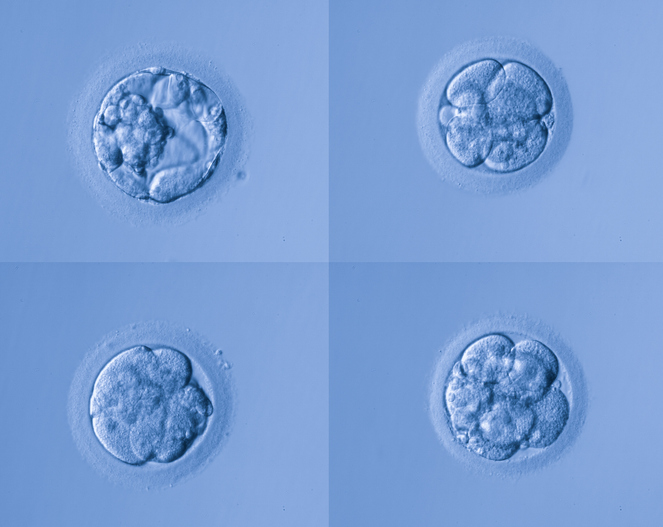.png)
.png)
If you're participating in Cofertility’s Split Program, where you freeze your eggs for free when donating half to another family that can't otherwise conceive, a necessary step in the process is carrier screening. Carrier screening is a type of genetic test that can tell you whether you carry a gene for certain genetic disorders. This critical step ensures the best possible outcomes for both you and the recipient family.
You may have some questions or find yourself wondering about its necessity, what it involves, and how the results could affect you and the intended parents. This article aims to clarify the process and provide you with essential information to help you feel informed and confident.
By understanding the role of genetic testing, you'll be better equipped to make informed decisions and communicate effectively with healthcare providers, genetic counselors, and anyone else.
Why is genetic testing required for egg donors?
The American Society for Reproductive Medicine (ASRM) has developed guidance for the screening of egg donors that most clinics and egg donation agencies (like ours) follow. This guidance includes genetic risk assessment, and specifically carrier screening. Why is carrier screening important?
Carrier screening plays an important role in ensuring the health of any potential children resulting from the donation. Many genetic conditions are recessive, meaning a person can carry the gene without showing symptoms. By screening egg donors, we can identify these genetic variants and minimize the risk of passing on inherited disorders.
Importantly, this genetic information is also valuable for you as the donor. It provides insights into your own genetic makeup, which can be beneficial for your future family planning. If you discover you're a carrier for a particular condition, you can make informed decisions about your own reproductive health and discuss potential risks with your healthcare provider.
Additionally, genetic testing helps in the matching process between donors and intended parents. By understanding the genetic profiles of both parties, we can ensure compatibility and reduce the risk of passing on inherited disorders. This contributes to the overall success and safety of the egg donation process.
What is carrier screening?
Carrier screening is a type of DNA test that looks for variants (mutations or DNA changes) in certain genes. These genes are associated with "recessive" conditions, which means a person needs to inherit two copies of the variant gene - one from each parent - to develop the condition.
Understanding autosomal recessive inheritance
We inherit two copies of every gene - one from the egg provider and one from the sperm provider. Autosomal recessive diseases occur when someone has a gene variant in both copies of a certain gene. Individuals who carry only one variant for a recessive disease are called "carriers" and generally don't have any symptoms of the disease.
X-linked inheritance
Some conditions are linked to genes on the X chromosome. Females typically have two X chromosomes, while males have one X and one Y chromosome. For X-linked conditions, males who have a variant are usually affected, while females are typically carriers. This is important in egg donation because a female carrier has a chance of passing the condition to male offspring.
The testing process
Genetic testing for egg donors typically involves the following steps:
- Sample collection: Either a blood draw, saliva, or cheek swab sample is taken.
- Laboratory analysis: The sample is sent to a specialized genetics laboratory for analysis.
- Waiting period: Results usually come back within 2-3 weeks.
- Result interpretation: A healthcare provider or genetic counselor will interpret the results for you, at no cost to you.
Today’s carrier screening tests often examine more than 100 genes associated with various inherited conditions. This comprehensive approach has replaced older methods that only tested for conditions common in specific ethnic groups.
What can you learn from genetic testing?
Genetic testing, particularly carrier screening, can provide you with a wealth of information about your genetic makeup. Primarily, you'll learn about your carrier status for the genetic conditions included in the panel. Being a carrier means you have one copy of a gene variant associated with a particular condition, but you don't have the condition yourself. This information is helpful for understanding potential reproductive risks, both for your role as an egg donor and for your own future family planning.
In addition to carrier status, genetic testing can sometimes offer insights into your ethnic background. Certain genetic variants are more common in specific populations, which can provide clues about your genetic ancestry. While this isn't the primary purpose of the screening, it can be an interesting secondary finding for some individuals.
Occasionally, carrier screening might reveal unexpected information about your own health. For instance, being a carrier for certain conditions might be associated with an increased risk of developing related health issues. While rare, these findings can be valuable for your long-term health management.
Furthermore, genetic testing results can sometimes shed light on your family health history. You might gain a better understanding of why certain conditions run in your family or discover previously unknown genetic factors that could be relevant to your relatives.
While genetic testing provides valuable information, it doesn't predict everything about your health or your potential offspring. Many factors beyond genetics contribute to overall health and development. Nonetheless, the insights gained from genetic testing can be a powerful tool for making informed decisions about your health and your participation in the egg donation process.
Types of conditions included in carrier screening
Carrier screening generally tests for genes associated with:
- Moderate to severe childhood diseases
- Conditions that lead to a shorter life expectancy
- Disorders causing disability
- Diseases with limited or no treatment options
Some examples of conditions often included in carrier screening are:
- Cystic fibrosis
- Spinal muscular atrophy
- Thalassemia/hemoglobinopathy
- Fragile X syndrome
- Tay-Sachs disease
- Sickle cell anemia
Specific conditions tested can vary depending on the screening panel used.
How genetic test results affect your donor status
In most cases, being a carrier for a genetic condition won't prevent you from being an egg donor. The key is ensuring that your genetic profile doesn't match with any variants carried by the intended parents or sperm provider.
However, there are some rare situations where a positive carrier screen might affect your eligibility, like if you're a carrier for a serious X-linked condition, like Fragile X.
What does a negative carrier screen mean?
A negative or normal screen means that no changes were found in any of the genes on the panel tested by the lab. While this is good news, it's important to remember that no test is perfect. Carrier screening doesn't test for all recessive diseases and can't identify all carriers for the diseases that were tested.
What does a positive carrier screen mean?
A positive carrier screen means that you have been identified as a carrier for one or more genetic conditions tested in the screening. Being a carrier doesn't mean you have the condition yourself. Instead, it means you have one copy of a gene variant associated with a particular condition.
Being a carrier is actually quite common. Most people are carriers for at least one genetic condition, and this usually doesn't affect their health. However, it can have implications for reproductive planning, both for egg donation and your own future family planning.
If you receive a positive result on your carrier screen, there's no need to worry. We cover the cost of talking to a genetic counselor to help you understand what your test results mean. The genetic counselor can explain your results in detail, discuss any potential implications, and answer any questions you may have. This ensures that you have a clear understanding of your genetic status and can make informed decisions moving forward.
Remember, a positive carrier screen doesn't necessarily disqualify you from being an egg donor. The implications depend on the specific condition and the genetic status of the intended parents or sperm provider. The genetic counselor and your Cofertility Member Advocate will guide you through what your results mean for your participation in the egg donation program.
Summing it up
Genetic testing is a required part of the egg donation process. It is a tool to ensure the best possible outcomes for all involved. The information you gain can be valuable not only for your role as an egg donor but also for your own future family planning.
As you go through this process, it's normal to have questions or concerns. Don't hesitate to ask your fertility doctor, genetic counselor, or your Cofertility Member Advocate for clarification or support. They're there to guide you through this important step in your egg donation journey.
Remember, being a carrier for a genetic condition is common and doesn't necessarily impact your overall health or ability to be an egg donor. By participating in genetic testing, you're contributing to informed decision-making and potentially helping create families while gaining valuable insight into your own genetic makeup.










